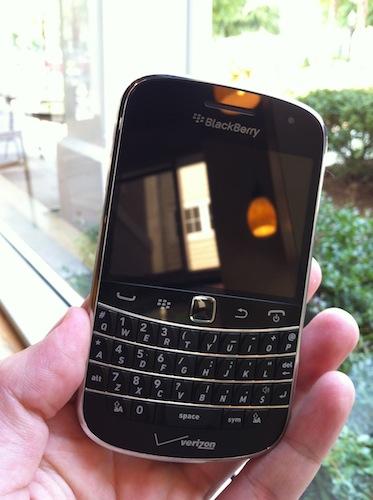
In October of last year, BlackBerry manufacturer Research In Motion showcased their brand new mobile operating system, and effectively changed the conversation about their company. While the doom-and-gloom outlook for RIM hadn't been completely forgotten, things were certainly looking brighter. BBX was what everyone was waiting for, the (hopefully) perfect blend between the BlackBerry OS and the promising BlackBerry PlayBook OS. In essence, the month of October was a shining star within the dark night that has encapsulated RIM.
But that changed in December, and in a huge way. Early on in the month, RIM found themselves in some legal trouble regarding the "BBX" name, and was temporarily barred from using the title for their next mobile OS. Instead of fighting it out, RIM opted to change the name altogether and went with something completely out of left field: BlackBerry 10, or BB 10. For those of you keeping track of BlackBerry OS versions, we're currently on number 7, which saw a release with the Bold 9900 series of devices released last year.
And then, just over a week later from that initial piece of bad news, Research In Motion informed the world that we would have to wait much, much longer than we originally thought to see the first BB10-powered devices. According to the company, the first next-gen devices wouldn't be on store shelves until "late 2012," which from December of last year seemed like forever to wait. Even now, in February, "late 2012" seems so far away.
But then the BlackBerry London popped up (more than once), seemingly out of nowhere, and people were shocked. Eyes wide and all that. The London looked pretty impressive, and the simulated screen on the device running what looks like BB10 showed plenty of promise for the future. Unfortunately, the underwhelming specifications for a device that is launching at the end of 2012 made the handset slip off the radar for some people, and RIM is still knee-deep in negative murmurings.
The BlackBerry Bold 9900 series, which saw releases on plenty of carriers around the world, and here in the States as well, is a fantastic series. It shows a whole new design strategy from RIM: focus on what made them great with the legendary hardware keyboard, but make the device thing and appealing to look at. And while BlackBerry 7 is definitely a minor upgrade to BlackBerry 6, there's definitely something about the Liquid Graphics on the handset that make it at least nice to look at. The Bold 9900 series features a 1.2GHz processor under the hood, and there's 768MB of RAM. 8GB of built-in storage, plus a microSD card slot to give you more room if you need it. Basically, while the Bold 9900 series may not be at the top of the list for most people out there, it shouldn't be because of the hardware, but only the software. Hardware wise the new Bold series is a stand-out device.
And that's why RIM needs --needs-- to focus on getting BlackBerry 10 on the newest Bold series. We know that BB10 devices are going to showcase the same element of design quality that the new Bold series displays, even as it advances forward. And we know that RIM is focusing on touchscreen devices, but leaks have told us that the company is also focusing on handsets with physical keyboards, too. That means the Bold 9900 series shouldn't be left in the dust, no matter how badly RIM wants to leap into the future and forget about the past.
Forget every other device, even the brand new Curve handsets that have launched. They're running only 800MHz processors, so they shouldn't even be on the future radar. But the Bold series has no reason to be forgotten, and RIM should recognize this. The hardware is top-notch, and with the BlackBerry 10 software rejuvenating the handset, there's no reason why people wouldn't buy it. Especially for the right price, considering the new BlackBerry 10-based handsets are probably going to be pretty expensive. And, let's face it, the people who bought the Bold 9900 series are going to expect updates, simply because their devices aren't slow and out of touch with technology. They've got speed and performance, and RIM should do something to show owners that they haven't been completely forgotten for what lies ahead.
Even if the Bold 9900 series owners have to wait until the end of 2012 to get the update, time it right with the launch of the new handsets and you'll have plenty of happy people out there.